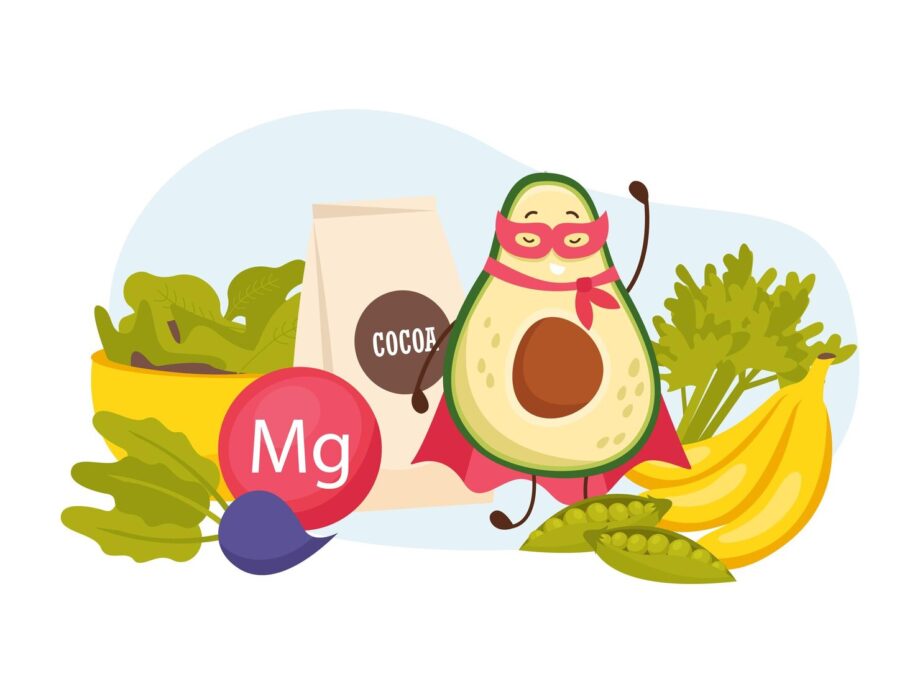Magnesium is one of the most essential minerals for human health, yet it’s often overlooked. With so much information—and misinformation—about magnesium, it’s time to separate fact from fiction. Let’s explore some of the most common questions about magnesium in a simple Q&A format.
Q: Why is magnesium important for the body?
A: Magnesium plays a vital role in over 300 enzymatic reactions in the body. It helps with energy production, muscle function, nervous system regulation, and even bone health. Without it, basic processes like heartbeat regulation and protein synthesis would falter.
Q: What are the signs of magnesium deficiency?
A: Symptoms can range from mild to severe and include:
- Muscle cramps or twitches
- Fatigue and weakness
- Irritability or anxiety
- Poor sleep quality
- Headaches or migraines
- In extreme cases, irregular heart rhythms
Deficiency is more common than you might think, as modern diets often lack magnesium-rich foods.
Q: Can magnesium really improve sleep and reduce stress?

A: Fact! Magnesium helps regulate neurotransmitters like GABA, which promote relaxation and better sleep. It also reduces the stress hormone cortisol. Studies suggest magnesium supplementation may improve sleep quality, especially for those with mild insomnia or stress.
Q: Does magnesium stop muscle cramps?
A: Partly true. Magnesium deficiency can contribute to muscle cramps, so supplementing may help in such cases. However, cramps can also have other causes, like dehydration or electrolyte imbalances, so magnesium isn’t a guaranteed solution.
Q: Is it possible to get too much magnesium?
A: Yes, but it’s rare. The body tightly regulates magnesium levels, and excess is usually excreted. However, extremely high doses from supplements or medications can cause side effects like diarrhea, nausea, and in severe cases, heart irregularities. Stick to recommended doses unless advised otherwise by a healthcare provider.

Q: What are the best dietary sources of magnesium?
A: Magnesium is abundant in foods like:
- Dark leafy greens (spinach, kale)
- Nuts and seeds (almonds, pumpkin seeds)
- Whole grains (brown rice, quinoa)
- Legumes (black beans, lentils)
- Dark chocolate (good news for chocoholics!)
Eating a varied diet should provide a healthy magnesium intake for most people.
Q: Are all forms of magnesium supplements the same?
A: Not quite. Different forms of magnesium serve different purposes:
- Magnesium citrate: Highly absorbable, great for digestion and mild laxative effects.
- Magnesium glycinate: Gentle on the stomach, often used for stress and sleep.
- Magnesium oxide: High in magnesium content but less absorbable. Often used for constipation.
- Magnesium threonate: Newer form, potentially beneficial for cognitive health.
Choose a form that matches your specific health goals.
Q: Can magnesium improve athletic performance?
A: Myth and fact. While magnesium supports muscle function and energy production, simply taking more magnesium won’t turn you into an Olympic athlete. However, if you’re deficient, supplementation can enhance performance and recovery.
Q: Is it better to get magnesium from food or supplements?
A: Food should always be your primary source, as it provides other beneficial nutrients alongside magnesium. However, if your diet lacks variety or you have higher needs (due to stress, exercise, or medical conditions), supplements can help fill the gap.
Final Thoughts
Magnesium is a powerhouse mineral that supports numerous bodily functions. Whether you’re seeking better sleep, less stress, or overall wellness, ensuring adequate magnesium intake is crucial. Focus on a balanced diet and, if necessary, choose the right supplement for your needs.
Have more questions about magnesium? Let us know in the comments!

